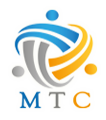The Complete Course on Management Managing People for Peak Performance
Why Choose this Training Course?
This course presents a high level appreciation of the principles of effective management and the practices that generate commitment and productivity. Through the process of self study, education and reflection on experience, this course will enable delegates to widen their understanding of the Manager’s role and apply practical strategies that will deliver immediate impact and improvement.
Good management is the foundation that underpins successful organisations. Become the ‘Communicating Manager’ who instructs but listens; the ‘Managerial Leader’ that inspires and the ‘People Developer’ who generates employee engagement. If people management is important to you, get learn new skills or sharpen your current competence by attending this motivating and energizing course.
This course will feature:
- An evaluation of personal management style and its impact on performance
- Techniques to effectively manage conflict in the organisation
- Managing a culture of effective problem solving and continuous improvement
- Tools for effective self management, team management and ‘managerial leadership’
- Recognizing individuality, managing diversity and aligning team performance
What are the Goals?
By the end of this course, participants will be able to:
- Recognise their managerial strengths and set an agenda for development
- Employ a range of interpersonal skills to build engagement
- Deliver constructive feedback that motivates future performance
- Diagnose team performance and identify strategies for improvement
- Select and apply innovative ideas and techniques for problem solving
Who is this Training Course for?
This course will be of significant benefit to all professionals who are interested in further enhancing their management skills. It is highly useful for personnel in all functional areas of an organisation and in all types of organisations whether government, private, military or health care.
This course is suitable to a wide range of professionals but will greatly benefit:
- Employees about to undertake a line management role
- Technical professionals tasked with supervision of others
- Existing Managers who seek to rejuvenate and energise their practice
- Managers with career aspirations to take a future leadership role
- HR/OD Practitioners who support / coach Managers to improve their practice
How will this Training Course be Presented?
This course will utilise a variety of proven adult learning techniques to ensure maximum understanding, comprehension and retention of the information presented. This includes a combination of presentations, group exercises, videos and class discussions in order to examine in an in depth fashion all the elements of the course content.
The emphasis will be on creating an in depth appreciation and understanding of the art of management. Activities, hands-on interactions, group participation, videos, role-playing, and case studies are used to highlight concepts taught and allow participants to practice the material.
The Course Content
Day One: The Foundation of Management
- Management demands courage
- The first step: managing self
- Employing the right management style at right time
- Accepting responsibility
- Accentuating the positive
- Having the courage to turn your ideas into action
Day Two: Dealing with Workplace Conflict
- Defining organisational conflict
- Understanding the causes of conflict
- The Thomas-Kilman Conflict Mode Instrument
- Managing individual differences
- Managing conflict for productive outcomes
- The creative benefits of productive disagreement
Day Three: Managing Organisational Improvement
- Focusing on continuous improvement
- Diagnostic tools for organisational/team appraisal
- Organisational culture and its impact
- Overcoming and managing resistance to change
- Coping with risk and risk avoidance
- Measuring the success of improvement efforts
Day Four: Building and Leading the Motivated Teams
- Characteristics of effective teams
- Characteristics of ineffective teams
- Managing the factors affecting team performance
- Empowering team development
- Utilizing team diversity
- Coaching to enhancing team competence
Day Five: Managing Problem Solving Activity
- Balancing analytical and creative thinking
- Effective use of mind mapping
- Capturing the power of brainstorming
- Unlocking team potential
- Treating problems as challenges
- Action planning for future improvement

